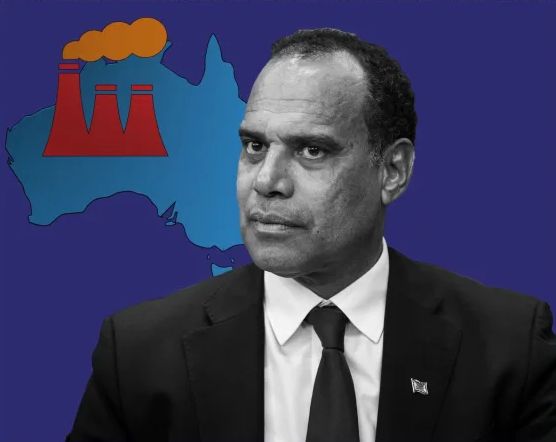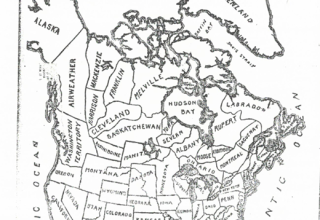By Binoy Kampmark
Vanuatu’s ICJ win has rewritten the rulebook, and Australia’s $14.5 billion fossil subsidies may now come with legal strings attached.
On July 23, the International Court of Justice handed down an advisory opinion that promises to have broader significance to the international community, notably for countries still heavily reliant on the economic returns of fossil fuels. Begun daringly in 2019 as an action by a group of Pacific Island students from the University of the South Pacific and supported by Vanuatu, the court unanimously found that producing and consuming fossil fuels “may constitute an internationally wrongful act attributable to that state”.
The decision is important in several respects. It states the view that countries have a legal obligation to mitigate climate change and limit the rise in global temperature to 1.5°C above pre-industrial levels, a goal prescribed by the Paris Agreement. To that end, countries were obligated to advance climate plans that reflected their “highest possible ambition” in making an “adequate contribution” in limiting temperature rises to that level. The discretion of countries to arrive at flexible “nationally determined contributions” was thereby constrained by “due diligence”. Such NDCs had to be compliant with the obligations under the Paris Agreement.
The opinion also pays much attention to the implications of not abiding by such mitigating obligations. Responsibility for breaches of climate change treaties, “and in relation to the loss and damage associated with the adverse effects of climate change, is to be determined by applying the well-established rules on State responsibility under customary international law.”
Direction is also given on what a State’s wrong in not mitigating climate change might look like. A failure to take the appropriate steps to protect the climate system from greenhouse gas emissions, “including through fossil fuel production, fossil fuel consumption, the granting of fossil fuel exploration licenses or the provision of fossil fuel subsidies,” could be “an internationally wrongful act which is attributable to that State.” The wrong arises, not from the emissions as such, but from the failure to protect “the climate change system from significant harm resulting from anthropogenic emissions of such gases.”
The decision is crucial in considering historical responsibility and the thorny issue of reparations, the nature and quantum of the latter being dependent “on the circumstances”. Both nation states and “injured individuals” could seek reparations from historically heavy emitters, a point previously dealt with most unsatisfactorily via “loss and damage” finance discussions through UN climate negotiations. The impediment that such finance can only be provided voluntarily is potentially overcome by the legal obligation to repair harm.
The ICJ also dismissed arguments — many made by wealthier states — that precise responsibility in the context of climate change was something difficult to attribute. The court observed “that while climate change is caused by cumulative GHG emissions, it is scientifically possible to determine each state’s total contribution to global emissions, taking into account both historical and current emissions.”
The opinion is yet another accretion to the body of climate change jurisprudence and addressing environmental harm. In 2019, the Dutch Supreme Court upheld the findings of the lower courts that the government of the Netherlands had to cut greenhouse gas emissions by 25% by the end of 2020 (compared to 1990 levels). The court accepted the proposition that government policy regarding climate change was justiciable, as climate change posed a “risk of irreversible changes to the worldwide ecosystems and liveability of our planet” with a “serious risk that the current generation of citizens will be confronted with loss of life/or a disruption to family life”.
On July 3, 2025, the Inter-American Court of Human Rights issued an advisory opinion finding that an independent right to a healthy climate, drawn from the right to a healthy environment, existed. International environmental law had evolved to a point where the court could state with conviction that the obligation not to create irreversible damage to the climate and the environment was jus cogens in nature (in other words, a compelling norm of international customary law).
The implications of the ICJ advisory opinion for Australia are unmistakable, despite being unenforceable. Australia is very much in the ongoing business of fossil fuel production, fossil fuel consumption, granting fossil fuel exploration licenses and aiding the fossil fuel sector through generous subsidies (in 2023-24 alone, these totalled A$14.5 billion).
Bek Markey-Towler, who manages Australia’s indispensable database on climate litigation, is also of the view that Australia was potentially vulnerable to legal suit “if we fail to take into account the fact that we can no longer continue to approve these [fossil fuel] projects because we have obligations under international law”. Liability could also arise from a failure to exercise due diligence in limiting the emissions of private companies operating within the jurisdiction.
As if to make that very niggling point, Vanuatu’s climate change minister, Ralph Regenvanu, is already suggesting that, following the ICJ opinion, “Australia is committing internationally wrongful acts as it is sponsoring and subsidising fossil fuel production and excessive emissions.” The country accordingly needed “to align itself with the advisory opinion and cease this conduct that is contributing to emissions and start making reparations.” A most momentous challenge has been set, and one that may also filter through into domestic litigation against politicians and officials overseeing the approval of projects with high greenhouse gas emissions. History in this field shows that where politicians and bureaucrats retreat, litigation follows.






